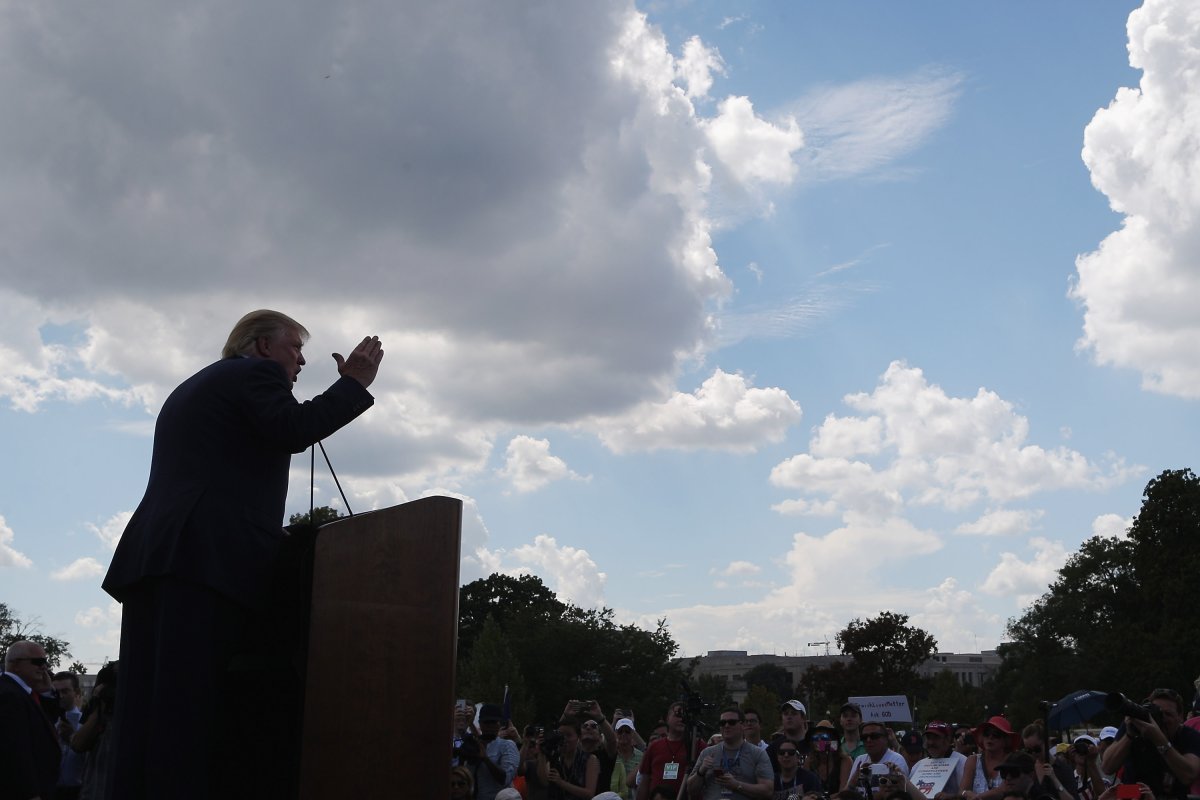As talks surrounding the Iran nuclear deal continue, journalist Barak Ravid told Jason Greenblatt during an episode of The Diplomat podcast that it is "totally unproductive" for President Joe Biden's administration to go on placing blame at former President Donald Trump's feet.
The wide-ranging conversation released on Monday began with a discussion about Iran. Greenblatt, the former White House envoy to the Middle East during the Trump administration, pointed to recent criticisms by Biden administration officials of Trump's decision to pull out of the Iran nuclear deal. He asked Ravid, a diplomatic correspondent at Walla News and a Middle East correspondent at Axios, for his thoughts on the matter.
Ravid began by saying he believes it is "highly inaccurate" to refer to Trump's May 2018 decision as "unconsidered," as some White House officials have in recent days, and said members of the former administration worked during the first 18 months of Trump's term to retain some version of the deal.
"It wasn't like Trump came into the White House on the first day and said, 'Oh, I'm pulling out of the Iran deal,'" Ravid said.

The bigger issue, according to Ravid, is the continued blame directed at Trump from the current administration. Politicians around the world tend to blame their predecessors for problems during their early weeks or months in office, he explained
"But, you know, Biden is a year in. So, again, to blame Trump for what is going on now—you know, I think it's highly, highly, highly problematic," Ravid added.
The Joint Comprehensive Plan of Action (JCPOA), was established in 2015 in collaboration with China, France, Germany, Russia, the United Kingdom, the U.S. and the European Union "to ensure that Iran's nuclear program will be exclusively peaceful," the U.S. Department of State said at the time the deal was reached.
Trump announced his decision to withdraw from the deal about three years later, calling it "one of the worst and most one-sided transactions the United States has ever entered into."
Biden, who was the vice president at the time the U.S. entered the JCPOA, said during his 2020 presidential campaign that he intended to rejoin the deal on the condition that Iran "returns to compliance." Biden's campaign website said of the deal that Trump had "decided to cast it aside" and credited the decision with "prompting" Iran to resume its nuclear program.
Earlier this month, Ravid reported for Axios that the White House was planning to "focus the fire on Trump" amid ongoing discussions about reviving the deal.
Greenblatt mentioned recent criticisms by Biden administration officials of Trump's decision to withdraw, pointing specifically to White House press secretary Jen Psaki and U.S. Department of State spokesperson Ned Price.
"None of the things we're looking at now—Iran's increased capability and capacity, their aggressive actions that they have taken through proxy wars around the world—would be happening if the former president had not recklessly pulled out of the nuclear deal with no thought as to what might come next," Psaki said during a press briefing last week.
One day earlier, Price encouraged reporters during a department briefing to consider "how we got here."
Price said it "is deeply unfortunate that because of an ill-considered or perhaps unconsidered decision by the previous administration that this administration came into office without these stringent verification and monitoring protocols that were in place and that according to the State Department, according to our Intelligence Community, and according to the IAEA international weapons inspectors, a deal that was working to permanently and verifiably prevent Iran from obtaining a nuclear weapon."
During his conversation with Greenblatt, Ravid alluded to some of the recent criticisms from Biden administration officials and questioned the point of continuing to direct blame at Trump.
"Either focus on getting the deal, if you think that getting a deal is the right thing to do, or prepare for a plan B if you think that you can't get a deal," he said. "To focus your energy on attacking somebody who is out of office for a year—I don't know. I just think it's totally unproductive."
Uncommon Knowledge
Newsweek is committed to challenging conventional wisdom and finding connections in the search for common ground.
Newsweek is committed to challenging conventional wisdom and finding connections in the search for common ground.
About the writer
Meghan Roos is a Newsweek reporter based in Southern California. Her focus is reporting on breaking news for Newsweek's Live ... Read more
To read how Newsweek uses AI as a newsroom tool, Click here.








